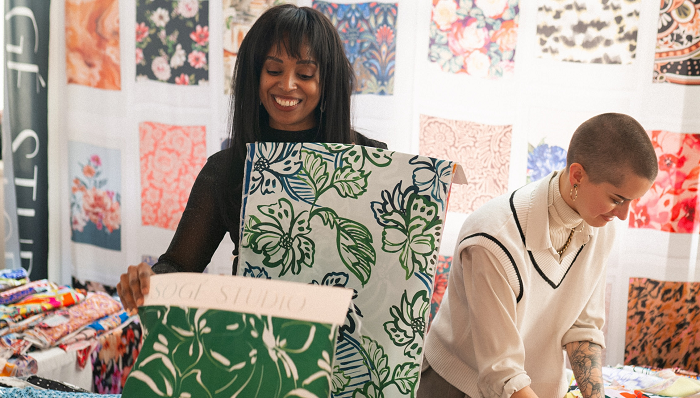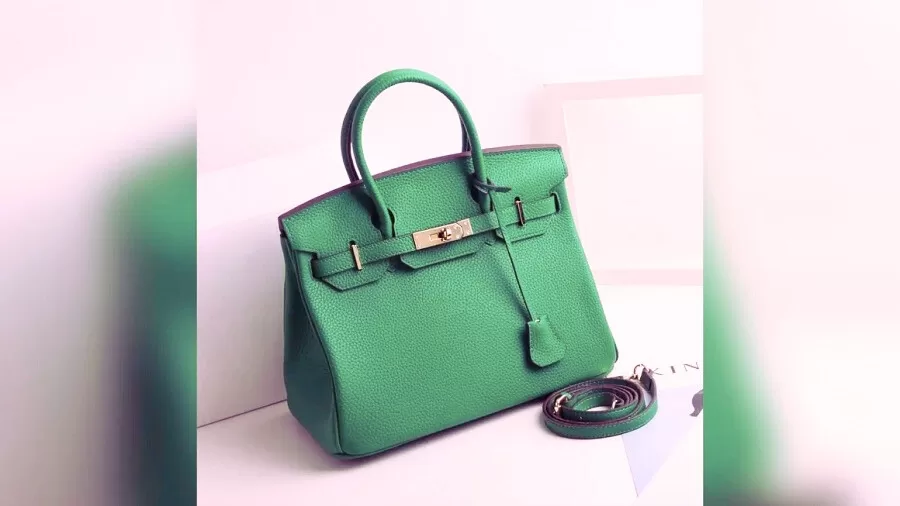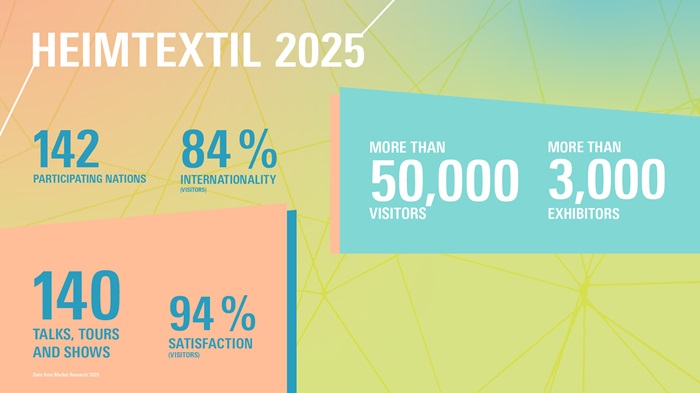FW
Work orders from international buyers are picking up with the return of political stability in Bangladesh after the January 5 national elections. Garment makers aim to achieve their export growth target at the end of the year if there are no further political upheavals.
Bangladesh, the second largest garment exporter after China, shipped knitwear items worth $7 billion and $7.18 billion of woven items, a year-on-year growth of 18.13 per cent and 17.32 per cent in July to January. The country shipped more than $2.24 billion of clothing overseas in January, 7.09 per cent more than a year ago period. This advance marks the 18th year-on-year increase in the last 19 months, buoyed by gains in exports of both woven and knitwear.
With Bangladesh tentatively on track to ship an unprecedented amount of clothing in 2014, and it will import record amounts of both textiles and cotton in response. Given that the country grows little cotton of its own, the local textile and apparel sector is almost entirely dependent on imports of the fiber. Cotton consumption in Bangladesh may rise 8.75 per cent in fiscal 2014-15.
However Bangladesh will face challenges in the European market as the European Union has awarded trade preferences to Pakistan as well for the same products.
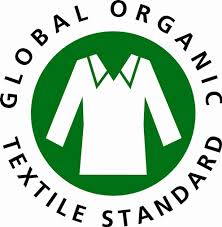 The Global Organic Textile Standard (GOTS) International Working Group has released Version 4.0 of the worldwide recognized standard for processing of textiles made from at least 70 per cent or 95 per cent certified organic natural fibers. GOTS' core provisions such as the 70 per cent minimum content of certified organic fibers, the general ban on the use of substances from disputed techniques such as genetic engineering and nanotechnology, as well as carcinogenic substances, have been maintained in the new version. There are modified rules on permissible conventional ‘additional fiber materials’: these now may consist of regenerated, respective synthetic fibers -- up to 30 per cent -- provided they are environmentally-improved and certified. For regenerated fibers this means that the raw material must be from certified organic production, sustainable forestry management, or be certified recycled. For synthetic fibers, the raw material must be recycled and also certified according to recognized standards.
The Global Organic Textile Standard (GOTS) International Working Group has released Version 4.0 of the worldwide recognized standard for processing of textiles made from at least 70 per cent or 95 per cent certified organic natural fibers. GOTS' core provisions such as the 70 per cent minimum content of certified organic fibers, the general ban on the use of substances from disputed techniques such as genetic engineering and nanotechnology, as well as carcinogenic substances, have been maintained in the new version. There are modified rules on permissible conventional ‘additional fiber materials’: these now may consist of regenerated, respective synthetic fibers -- up to 30 per cent -- provided they are environmentally-improved and certified. For regenerated fibers this means that the raw material must be from certified organic production, sustainable forestry management, or be certified recycled. For synthetic fibers, the raw material must be recycled and also certified according to recognized standards.
In the future, textile manufacturers will have a larger choice of fiber mixes if they also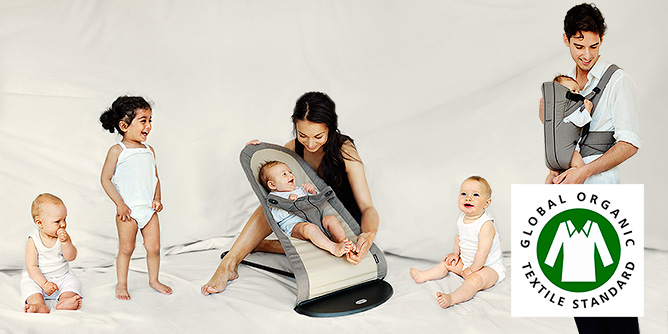
use the environmentally-improved variants of regenerated and synthetic fibers. A wider product selection of GOTS-certified products will be made possible which will also support the increased use of organic fibers. In addition, the use of virgin polyester and angora is banned.
Processing is also regulated more strictly. As in every revision process, the latest insights regarding textile chemistry and residue testing methods were considered and various applicable criteria and limit values were reinforced. The already extensive list of banned substances and strict residue parameters was further extended. This will point out more clearly that all substances criticized by Greenpeace in their ‘Detox Campaign’ remain banned in GOTS. New criteria were adopted for specific product groups, such as textile personal care products or mattresses.
The GOTS social criteria are based on the International Labor Organization (ILO) key conventions, which include ban on child labor. The audit areas that need to be covered by the auditors during the on-site inspections were further specified. The GOTS 4.0 now expressly stipulates programs or certifications with the results considered during the GOTS inspection: Fair Wear Foundation (FWF), Social Accountability 8000 (SA800), Worldwide Responsible Accredited Production (WRAP) and the Business Social Compliance Initiative (BSCI). Fire prevention training and evacuation drills were added to the existing health and safety training requirements. The implementation period for GOTS certified entities to comply with the new criteria is one year after the announcement.
The Top 20 countries in terms of the total number of GOTS-certified facilities were (by rank): India, Turkey, Germany, China, South Korea, Italy, Pakistan, Bangladesh, Japan, Portugal, France, United Kingdom, United States, Austria, Switzerland, Netherlands, Greece, Denmark, Belgium and Sri Lanka.
www.global-standard.com
The testing laboratory of the Bangladesh Garment Manufacturers and Exporters Association (BGMEA) has obtained a certificate from India’s National Accreditation Board for testing and calibration Laboratories (NABL). The certificate relates to chemical and mechanical parameter tests of BGMEA. With this certificate BGMEA has advanced a step ahead in international quality control of textile products.
The lab provides service for local and international buyers at a lower rate. BGMEA spends 10 per cent of the profits for the welfare of workers of the readymade garment sector. BGMEA works to protect and promote the interest of the garment industry, ensuring a sustained growth in foreign exchange earnings of the country. It maintains liaison with foreign buyers, business associations and chambers. It gives local manufactures opportunities to interact with foreign buyers. It has its own Institute, the BGMEA Institute of Fashion & Technology.
The association organizes trade missions to explore new markets and to facilitate trade in existing markets. It undertakes a number of regular activities and projects to ensure workers’ rights, social and environmental compliance and welfare. It plans to develop a central database system for workers of the readymade garment sector.
www.bgmea.com.bd/
Pakistan feels the GSP (Generalised System of Preference) Plus status will boost the country’s business with European countries and enable it to develop almost all sectors of the economy including leather and sports goods. GSP Plus is seen as demonstrating the trust and confidence of EU countries in the quality and competitiveness of Pakistan’s goods and products. The GSP Plus scheme is not only expected to boost Pakistan's exports to EU but would also strengthen its economy through greater trade, increased economic activities and creating employment opportunities for local people.
The country’s value-added sector needs to modernise its operational system. Trade and industrial sectors would have to adopt modern systems of computerised delivery besides paying proper attention to export growth in volume by making its space in European markets. Pakistan has a free trade agreement with Malaysia and China. The All Pakistan Bedsheet and Upholstery Manufacturers Association (APBUMA) has expressed reservations and fears about this trade agreement and bilateral trade with India. Following the FTA with China, Pakistani markets have been flooded with Chinese products. And with a proposed agreement on bilateral trade with India, APBUMA fears India can dump its cheap yarn in Pakistan.
Trade unions in Cambodia are putting the garment and shoe industries under pressure by demanding unreasonably high wages. Eight opposition-aligned trade unions have called for a garment strike from March 12 to 19 to demand a minimum wage of $160 for workers and the release of 21 detainees who were arrested on January 3 during violent protests. The eight trade unions represent about 2,00,000 of the 6,00,000 workers in more than 900 garment and shoe factories in Cambodia. The garment and shoe industry is the country’s largest foreign exchange earner, generating about $5.53 billion in revenues last year.
The current minimum wages for Cambodian garment workers are US$100 a month, up from UA$80 dollars last year. These wages are higher than those of Laos, Bangladesh, India, Nepal and Myanmar. Although the Labor Advisory Committee had already decided on the new minimum wage by a majority vote, minority and violent unions continue with daily threat of strikes, demonstrations and disruption of the workplace.
Many factories have reported a reduction in orders starting from April this year as buyers now consider Cambodia as a high-risk country. Ultimately it will be Cambodian workers who will be the hardest hit.
The Secondary Materials and Recycled Textiles association (SMART) is gathering from March 1 to 4 at Arizona, US, to spread awareness about the benefits of clothing and textile recycling. Each year more than 13 million tons of recyclable clothing and textiles are dumped into America’s landfills while only 15.3 per cent is reused or recycled.
SMART is an association for-profit clothing and textile recyclers. It drives the clothing and textile recycling industry. Its member companies work every day to divert used clothing and household textiles out of municipal landfills and into re-use and recycling programs. More than 95 per cent of all clothing and textiles can be re-used or recycled. As long as an item is odor-free and dry, even if it is stained or torn, there is use for it in the world of textile recycling.
This year’s conference focuses on educating executives from SMART’s member companies on how to work with local governments to successfully regulate clothing collection bins in their community. SMART is the leading voice of the clothing recycling industry. According to the US Environmental Protection Agency, recycling textiles has a greater impact on reducing greenhouse gases than recycling other household materials.
Apparel makers in Bangladesh have expressed reservations about incorporating key information, especially on factory inspection and trader profiles, in the proposed database. They fear their business secrets may leak out. Instead, they want to make public the information on some selective areas in consultation with apparel sector stakeholders and allow limited access to the database.
Leaders of the country’s apparel sector raised their objection to the idea of making their crucial business information publicly accessible in meetings with foreign buyers and government officials on different occasions. They say if the inspection report of a factory was made public, it may damage the business of a factory, because it might drive away its buyers. They suggest the factory should be given a remediation period and in the event of its failure to attain the required level of improvement within the time frame the inspection report could be made public.
Experts have also backed apparel makers’ views about inclusion of the core business information and inspection reports in the database. They, however, feel all trade union-related information should be made public through inclusion in the database. They also suggested government monitoring of the whole process centrally.
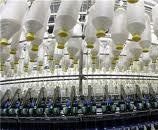 US the world's third-largest supplier of yarns after China and India is consolidating its position further in the global market. What's helping the industry are factors like falling energy costs, easy access and proximity to ports, high-quality raw cotton and local subsidies on production. In fact, these factors are luring several domestic as well as Chinese and Indian investors to the US spinning and weaving sector.
US the world's third-largest supplier of yarns after China and India is consolidating its position further in the global market. What's helping the industry are factors like falling energy costs, easy access and proximity to ports, high-quality raw cotton and local subsidies on production. In fact, these factors are luring several domestic as well as Chinese and Indian investors to the US spinning and weaving sector.
Consumption of products manufactured in the US has been increasing and domestic 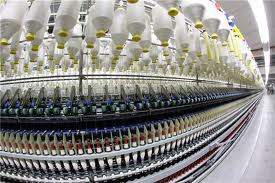 spinners are taking advantage of regional trade pacts that offer preferential duty treatment on finished products made with US materials. For instance, companies like Gulf Coast Spinning is investing $130 million in a facility in Louisiana and casual clothing and underwear maker Gildan Activewear has already announced its plans of ramping up its yarn-spinning facilities in the US over the next two years. China's Keer Group plans to invest $218million in setting up its first textile plant in South Carolina to make industrial cotton yarn. And Indian textile major Shrivallabh Pittie Group is investing $70 million to build its first US facility in Georgia to manufacture carded cotton yarn.
spinners are taking advantage of regional trade pacts that offer preferential duty treatment on finished products made with US materials. For instance, companies like Gulf Coast Spinning is investing $130 million in a facility in Louisiana and casual clothing and underwear maker Gildan Activewear has already announced its plans of ramping up its yarn-spinning facilities in the US over the next two years. China's Keer Group plans to invest $218million in setting up its first textile plant in South Carolina to make industrial cotton yarn. And Indian textile major Shrivallabh Pittie Group is investing $70 million to build its first US facility in Georgia to manufacture carded cotton yarn.
Meanwhile, domestic players are chalking out plans to offer US-made products to customers. For example, US manufacturer Buhler Quality Yarns has chosen to invest its cash fully in domestic market instead of sourcing from Asia. The company currently operates around 32,000 spindles in the US. North Carolina-based Burlington Industries is another company with bulk of its manufacturing facility in the US. It has two facilities in China, three in Mexico and seven in the US. Most of the companies believe that increasing manufacturing base in the US is inspired by the fact that the economy needs a boost and also players can be sure of the product quality.
However, experts believe even as the US yarn market continues to take shape, in the coming years, emerging economies of Asia will showcase a better potential. The reason being as their economies grow their consumption of cotton will also increase, while for America to become a manufacturing hub, will take many more years.
Gildan.com
The 8th Interfilière Hong Kong will be held in from April 1 to 2, 2014. The trade show will focus on sustainability, trends, networking and innovation and collaborations among fashion and industry experts leading the world intimate apparel market. A wide array of events and projects including the eco-system showcase, Sustainable Development Conference, Creative Lab, Trend Forum, Seminar Program, Personal Shopper, Selection Guide is planned.
Leading manufacturers and specialists demonstrating eco-responsible initiatives in the market will speak about their latest research and developments. An educational and explanatory overview on ecological manufacturing, green textile certifications, sustainable marketing and much more will be delivered through the seminar program.
Finished prototypes will be showcased at the Creative Lab, a closed showroom to illustrate the longings of the New Woman, the Instagram Woman. Supervised by Concepts Paris, this project will give designers and buyers a fresh and forward-looking perspective on the international lingerie consumer. Top-class manufacturers from the Hong Kong Intimate Apparel Industries’ Association will create prototypes using the latest innovations and techniques ranging from new gluing methods, laser technology, 3D printing and more.
Evolution 23, a 60-page trend guide book containing the essence and details of the forum, will be released at Interfilière Hong Kong. Evolution is a unique and fine-tuned trend resource developed for the intimate apparel market. Interfilière Hong Kong has been co-organized with the French Knitwear and Lingerie Federation.
www.interfiliere.com/hongkong/
The GSP Plus facility has helped boost Pakistan’s textile export orders by 30 per cent. An increase in textile orders to Pakistan suggests that European buyers want to take advantage of the GSP plus facility to Pakistan. Accordingly, Pakistan has revised its growth rate from 3.6 per cent to 5.1 per cent for 2013-14. It hopes to raise textile exports from $13 billion to $26 billion per annum in the next five years. The country will invest an estimated $5 billion in weaving and processing textile projects in the proposed textile integrated parks.
So beneficial has been the effect of the GSP plus status that it may shift the textile business from Vietnam to Pakistan in the years ahead. Germany in particular wants more cooperation with Pakistan and feels this can be ensured by removing impediments in export credit guarantees, by improvement in the security situation, vocational training for skill enhancement, energy supplies and implementation of social compliances by Pakistan.
Pakistan in turn hopes German brands like Puma, Adidas, Marc O’Polo, Hugo Boss, and Tom Tailor see Pakistan as a sourcing destination. It also seeks help for ventures under buy back arrangements of semi manufactured technical textiles with Germany.




